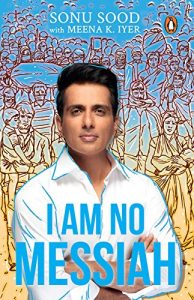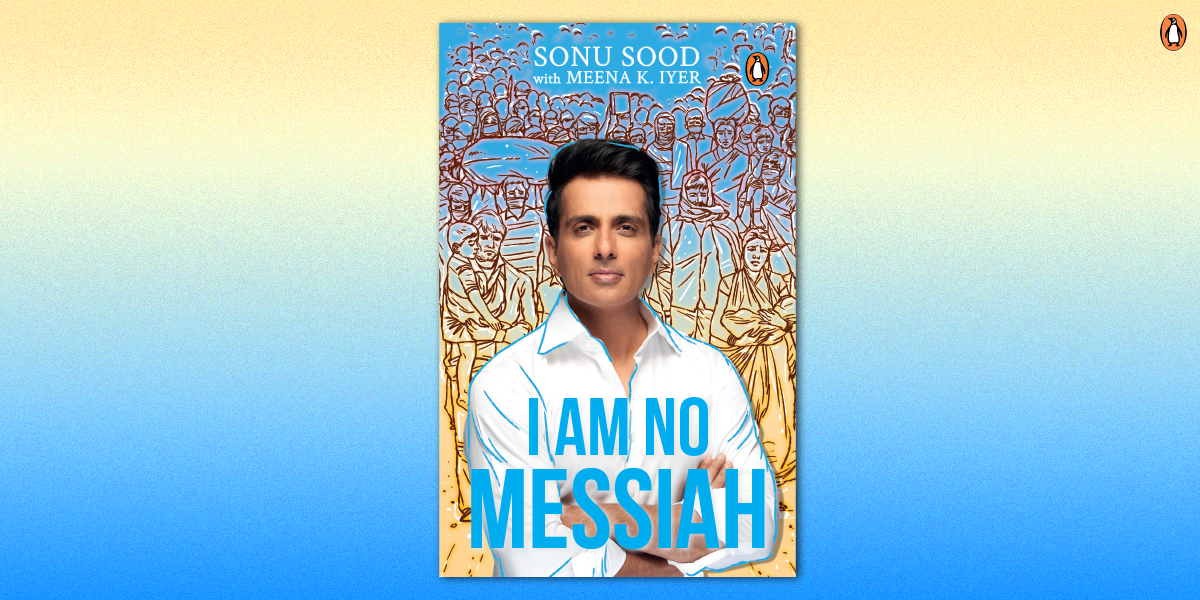‘Ask not what your country can do for you; ask what you can do for your country.’ says Sonu Sood, quoting John F. Kennedy, as he explains what propelled him to undertake the colossal challenge of helping thousands of migrants get safely to their homes as India reeled with COVID-19.
From taking to the streets and reaching out to the stranded, to setting up a dedicated team and making arrangements for national and international transport, Sonu managed to help thousands of helpless and needy workers. Chartered flights, buses and trains were sanitized and paid for. Distress calls from all over the world were answered.
Here are a few instances from Sonu’s memoir, I am No Messiah that remind us of the beauty of compassion, humanity and the power of one man’s determination to give succour to those in need.
The time when 167 women stranded in Ernakulam, Kerala, were rescued and sent to Odisha –
The women worked in an embroidery workshop. ‘The factory had closed soon after the lockdown was imposed in Kerala, leaving these Odia workers high and dry. The women had no shelter and hardly any food in Kerala. They also barely knew Malayalam, the state’s language. In short, they were cash-strapped and helpless.’
Explaining the logistics involved, Sonu Sood writes, ‘… I first reached out to some authorities at Air Asia. Once they were convinced about the immediacy and the integrity of my request, they agreed to send an aircraft from Bengaluru to Kochi to airlift the girls and take them to Bhubaneswar. In Kerala, we had to arrange for a minimum of seven large buses to fetch the 167 women from Ernakulam and drop them off at the Kochi airport in time to catch the flight.’
The setting up of the Ilaaj India app –
Ilaaj India is a mobile based application to connect people seeking medical help with those equipped to provide it to them.
‘Ilaaj India aims to get the patient the best possible help in the shortest possible time and at the closest possible venue. We strive to get the surgeries or procedures done at hospitals easily accessible to patients. But we can also make arrangements to get them treated in bigger metros like Mumbai or Delhi, depending on the immediacy and the kind of time the patient has.’

‘For me, Ilaaj India was born when I learnt of the magnitude of the health-care problem that afflicts thousands of Indians. The figures shook me: an unbelievable number of children died due to inadequate medical attention in 2019.’
The quote that best describes Sonu’s effort to better the healthcare facilities in the country is from the book itself where he cites Mahatma Gandhi – ‘The best way to find oneself is to lose oneself in the service of others.’
The ‘Ghar Bhejo’ operation turns international
‘In July 2020, when parents of over a hundred kids beseeched me to airlift their children from Moscow and ferry them to Chennai, I was caught off balance. Chennai was under complete lockdown, there were no flights going in or flying out. It was an insurmountable difficulty because when a state is under lockdown, you can’t procure landing permissions. But the parents were desperate.’
‘On 5 August, they did land in Chennai, all the way from Moscow. I had managed to get last-minute permissions from the authorities in Moscow and Chennai to facilitate this journey of the medical students.’
The beginning of a long journey ahead
Reflecting on his incessant efforts to help those in need, Sood notes ‘It is no longer just about Ghar Bhejo, for getting a migrant home doesn’t mean the end of the journey; it is the beginning of a whole new set of problems. And service to mankind doesn’t begin and end with migrant workers; there are scores of other people too who need help. When you spread your arms to embrace people, you realize that a sea of humanity awaits.’
On a concluding note, we would like to recall these words by Sood that form the core of his life’s philosophy – ‘There isn’t a moment when something doesn’t touch your heart, confirming that by stepping forward to help, you’re doing something right. As I said earlier, one lifetime isn’t enough for what I want to do. But I do know that this lifetime has been earmarked for a dream.’
**








